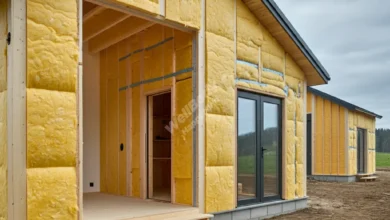Eco-Entrepreneurship: Starting a Green Business

Introduction
Are you passionate about making a positive impact on the world? Do you dream of running your own business? If so, eco-entrepreneurship might be your perfect career path!
Eco-entrepreneurship is the practice of starting and running a business with a focus on environmental sustainability. It’s about creating products or services that help solve ecological problems while also turning a profit.
In today’s world, green businesses are more important than ever. Why? Because our planet faces serious environmental challenges, from climate change to pollution. The good news is that more and more people want to make eco-friendly choices. This growing demand for sustainable products and services creates exciting opportunities for eco-entrepreneurs like you!
Understanding Eco-Entrepreneurship
What is an eco-entrepreneur?
An eco-entrepreneur is a business owner who puts the planet first. They have some key traits that set them apart:
- Passion for sustainability: They truly care about the environment.
- Innovation: They find creative solutions to eco-problems.
- Long-term thinking: They focus on lasting positive impact.
- Adaptability: They can adjust to changing environmental needs.
The triple bottom line: People, Planet, Profit
Eco-entrepreneurs follow a special business model called the “triple bottom line”. This means they care about three things equally:
- People: How the business affects employees, customers, and communities.
- Planet: The environmental impact of the business.
- Profit: Making money to keep the business running and growing.
This balanced approach ensures that eco-businesses do good while doing well financially.
Identifying Green Business Opportunities
Market research
To start a successful eco-business, you need to find gaps in the green market. Here’s how:
- Talk to people: Ask friends and family about eco-products they wish existed.
- Watch trends: Keep an eye on what’s popular in the green world.
- Study competitors: Look at what other eco-businesses are doing (and not doing).
Useful tools for researching eco-friendly trends include:
- Google Trends
- Social media listening tools (like Hootsuite or Sprout Social)
- Industry reports from organizations like the Global Sustainability Institute
Sustainable business ideas
Here are some eco-friendly business concepts to spark your imagination:
- Plastic-free grocery delivery service
- Eco-friendly pet products
- Solar-powered gadget chargers
- Sustainable fashion rental platform
- Zero-waste catering company
- Eco-tourism agency
- Recycled art supplies store
Remember, the best idea is one that matches your skills and passion with a real market need!
Developing a Green Business Plan
A solid business plan is crucial for any startup, especially for eco-businesses. It helps you clarify your goals, plan your strategy, and attract investors.
Essential components of a sustainable business plan
Here are the key elements to include:
- Executive summary: A brief overview of your eco-business idea
- Company description: Your mission, vision, and eco-friendly values
- Market analysis: Research on your target green market
- Products or services: Details on your sustainable offerings
- Marketing strategy: How you’ll reach eco-conscious customers
- Sustainability goals: Specific environmental targets
- Financial projections: Expected costs and revenues
- Team: Your eco-expert staff and advisors
Setting eco-friendly goals and objectives
When setting goals for your green business, think SMART:
- Specific: Clear targets (e.g., “reduce plastic waste by 50%”)
- Measurable: Use numbers to track progress
- Achievable: Set realistic goals
- Relevant: Align with your eco-mission
- Time-bound: Set deadlines for each goal
Sustainable supply chain management
Choosing green suppliers is crucial for eco-businesses. It ensures your entire operation is environmentally friendly. Here’s why it matters:
- Reduces overall environmental impact
- Builds customer trust in your brand
- Encourages innovation in eco-friendly practices
- Creates a network of like-minded businesses
Look for suppliers who share your commitment to sustainability. Ask about their eco-certifications and environmental policies.
Funding Your Eco-Business
Starting a green business often requires money. Let’s explore your funding options.
Traditional funding options
- Bank loans: Borrow money from a bank, but be prepared to show a solid business plan.
- Investors: Find people willing to invest in your eco-business in exchange for a share of ownership.
- Crowdfunding: Use platforms like Kickstarter to raise money from many small donors.
Green-specific funding opportunities
Eco-entrepreneurs have access to special funding options:
- Green Business Bureau Grants: Offers financial support for sustainable startups.
- EPA Small Business Innovation Research Program: Funds eco-friendly technology development.
- Global Environment Facility: Provides grants for projects addressing global environmental issues.
- Echoing Green Fellowship: Offers seed funding and support for social entrepreneurs, including those focused on environmental issues.
These green-focused programs can provide not just money, but also valuable support and connections in the eco-business world.
Remember, when seeking funding, highlight how your business will make a positive environmental impact. This can set you apart from traditional startups!
Marketing Your Green Business
Effective marketing is key to reaching your eco-conscious customers and growing your green business.
Developing an eco-friendly brand identity
Your brand is more than just a logo. It’s your business’s personality. For eco-businesses, your brand should reflect your commitment to sustainability. Consider these tips:
- Use earth tones or green in your color scheme
- Choose natural or recycled materials for packaging
- Tell your sustainability story in your branding
- Be transparent about your eco-practices
Green marketing strategies
Green marketing is different from traditional marketing. Here’s a comparison:
| Traditional Marketing | Green Marketing |
|---|---|
| Focuses on product benefits | Highlights environmental benefits |
| May use excessive packaging | Minimizes packaging waste |
| Often print-heavy | Emphasizes digital marketing |
| Product-centric | Planet and people-centric |
| Short-term sales focus | Long-term sustainability focus |
Avoiding greenwashing
Greenwashing is when businesses make false or exaggerated claims about their eco-friendliness. It’s crucial to avoid this to maintain trust. Here are some tips:
- Be honest about your environmental impact
- Back up claims with data and certifications
- Admit areas for improvement in your sustainability efforts
- Focus on real environmental benefits, not vague statements
- Educate customers about your eco-practices
Overcoming Challenges in Eco-Entrepreneurship
Starting a green business can be rewarding, but it comes with unique challenges. Let’s explore some common obstacles and how to overcome them.
Common obstacles faced by green businesses
- Higher costs: Eco-friendly materials and processes can be more expensive
- Limited awareness: Some customers may not understand the value of green products
- Regulatory hurdles: Navigating environmental regulations can be complex
- Fierce competition: The green market is growing, leading to increased competition
- Balancing profit and purpose: Maintaining profitability while staying true to your eco-mission
Strategies for success
Here are some practical tips to overcome these challenges:
- Educate your customers: Help them understand the value of your eco-friendly products
- Innovate constantly: Find creative ways to reduce costs without compromising sustainability
- Network: Connect with other eco-entrepreneurs for support and advice
- Stay informed: Keep up with environmental regulations and certifications
- Focus on quality: Ensure your products are high-quality, not just eco-friendly
- Tell your story: Share your passion for sustainability to build customer loyalty
- Measure impact: Track and share your positive environmental impact
Remember, every challenge is an opportunity to innovate and improve. Stay committed to your green mission, and success will follow!
Measuring and Reporting Sustainability
To ensure your eco-business is making a real impact, you need to measure and report your sustainability efforts.
Key performance indicators for green businesses
Here are some important metrics to track:
- Carbon footprint: Measure your total greenhouse gas emissions
- Energy efficiency: Track energy use and savings
- Waste reduction: Monitor waste produced and recycled
- Water conservation: Measure water usage and savings
- Sustainable sourcing: Percentage of eco-friendly materials used
- Customer engagement: Number of customers choosing green options
Sustainability reporting
Sustainability reporting is sharing your environmental impact with the public. It’s important because it:
- Builds trust with customers and investors
- Helps you track progress towards your eco-goals
- Inspires other businesses to go green
- Can attract eco-conscious customers and partners
When creating a sustainability report:
- Be honest about both successes and challenges
- Use clear, simple language
- Include both numbers and stories
- Explain how your efforts benefit the environment
Case Studies: Success Stories in Eco-Entrepreneurship
Let’s look at some inspiring examples of successful eco-entrepreneurs:
1. Patagonia
Patagonia, an outdoor clothing company, is known for its commitment to sustainability. They:
- Use recycled materials in their products
- Offer free repairs to extend product life
- Donate 1% of sales to environmental causes
Lesson learned: Strong eco-values can build a loyal customer base.
2. Beyond Meat
Beyond Meat creates plant-based alternatives to meat products. They’ve succeeded by:
- Innovating to make plant-based foods taste like meat
- Partnering with major food chains for wide distribution
- Educating consumers about the environmental benefits of plant-based diets
Lesson learned: Eco-friendly innovation can disrupt traditional industries.
3. Ecosia
Ecosia is a search engine that uses its profits to plant trees. Their success comes from:
- A simple, impactful mission: Plant trees with every search
- Transparency: Regular reports on tree-planting progress
- User engagement: Making users feel part of the solution
Lesson learned: A clear, actionable eco-mission can drive rapid growth.
Conclusion
Eco-entrepreneurship is more than just a business trend – it’s a powerful way to make a positive impact on our planet while building a successful company.
Let’s recap the key points:
- Eco-businesses focus on the triple bottom line: People, Planet, and Profit
- A solid green business plan is crucial for success
- Effective marketing helps reach eco-conscious customers
- Measuring and reporting sustainability efforts builds trust and tracks progress
- Successful eco-entrepreneurs show that profit and purpose can go hand-in-hand
Are you ready to start your eco-entrepreneurship journey? Here are your next steps:
- Identify your green business idea
- Research your target market
- Create a sustainable business plan
- Seek eco-friendly funding options
- Develop your green brand and marketing strategy
Remember, every eco-friendly business, no matter how small, can make a difference. Your idea could be the next big solution to an environmental challenge!
So, what’s your green business idea? Start planning today, and join the growing community of eco-entrepreneurs making the world a better place, one sustainable business at a time!



